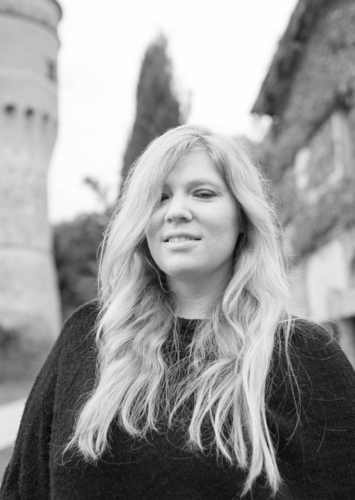after Vivian Gornick
The situation is that he’s dead. This will not change. Cannot.
The story, you might think, is that he killed himself.
Or that the police officers cried when they watched his brother lay on top of him; two grown men chest to chest, one life pressing into one death.
That one officer remarked that the bloodstain on the grass looked like a sudden poppy flower could be the story. Or that the gun-hole in his head was still dripping blood as they removed him from the scene, making a trail of them.
Maybe the story is that he called 911 first, so his brother wouldn’t find him. “I’m going to shoot myself by the pond,” the transcript read. You might think the story is that the operator heard “barn” instead of “pond” and that they searched the sixty-acre property for hours before bringing in a drone to find him.
Or that his father, when told his son had just shot himself, simply replied, “Okay.” Or that when his mother finally made it up to New Hampshire from Jersey, she found a steak defrosting in his fridge for that evening’s dinner and a confirmation email for a Saturday yoga class on his computer.
The story could be that he was making plans, intended to still be alive to eat that steak or wrench his body into eagle. The story could be that there was still time until he stopped it. Or that time is never stopped. Or that that statement is only true for the living.
My phone could be the story. The one I held in my hand and thought: let me text him and wish him a Happy New Year—it’s been five years. That I had thought this the day before he would take his life, merely hours of his breathing left. That I had thought of him in this exact moment, among many moments, could be the story, or that when we had grown apart, the country separating us—my California and Ohio to his New Jersey and New Hampshire—that I still thought of him often.
The story could be that I did not text him. Didn’t even think about that fact that I didn’t until two weeks later when the phone rang, and a voice said, “J killed himself.” The story could be that I will never get to talk to him again, eat falafel with him, see Sigur Ros hum their Icelandic sounds in Prospect Park with him; a couple appearing out of nowhere saying, “Here, share our blanket, smoke our weed.”
The story could be that something mighty and abstract, unknowable and uncontrollable had made me think to text him, the thought entering my mind like a little bee, and that I had ignored it. Or became distracted by dinner, or the next episode of a bad TV show.
The story could be that we always think there is more time. A next time. Or that there is more time, but that it can be absent someone and then we will still have to live in it.
The story could be the young coroner telling his mother that she felt like he was someone she might have gone on a date with. Or that when his mother told me this, she wept for this potential daughter-in-law who stood before her naked, dead son and thought, I would have liked to have had a coffee with him.
That he was handsome, even with the gun wound, could be the story.
Or that once, in college, he had held me in a drunken stupor and we fell asleep in my twin bed, pretzeled like Duchamp shapes. The story could be that we never touched each other, not really. But that I wanted him to touch me, to make my skin feel like a beginning rain was slowly dotting it.
The story could be that this is how I will remember his body now: his warm head and dark beard pressed against mine that night, whole and untouched. Not bloody. Not open. No wound yet. No wound that could be seen by me. By anyone. That could be the story. What we didn’t see, could not.
